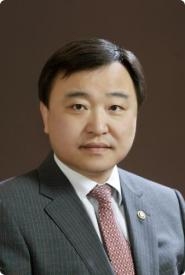
The industrial buzzword of the year should be 'smart'. From mobile phones to automobiles, a wide range of machines became smarter and changed the business paradigm as the conventional concept of 'hard work' is now replaced by creative and effective 'smart work' with the help of IT devices.
The number of smartphone subscribers is expected to reach seven million this year, along with three million subscribers for IPTV, a previous version of smart TV, which signals the wide distribution of smart devices. Apart from the IT industry, major industries such as the automobile, machine, and shipbuilding industries are also jumping on the smart bandwagon. For instance, a smart car is equipped with dozens of electronic control units (ECU) and mobile devices.
The key to competitiveness in the era of smart devices is the software. The power of smartphones, such as iPhone, is derived from their abundant supply of application software, and the success of ECUs that control a car lies in the software. Despite the meager three percent revenue share in the mobile phone market, iPhone boasts a surprising 37 percent of operating profit share, which shows the enormous added value that software brings.
Particularly, the emergence of new developing countries, including China, make it more difficult to compete solely based on 'cost competitiveness'. In this situation, the software proves all the more important as it creates added value with which those developing countries cannot easily catch up.
Although Korea's software industry has 20 years of history, the limited size of the domestic market, due to problems like illegal copying and the industrial system controlled by a few companies impede its advance in the global market. Also, a decreasing pool of talent in the field is another factor that is putting the country's competitiveness at risk in the era of smart technology.
For those reasons, the government has established strategies for the development of the software industry, actively promoting and restructuring the industry as well as increasing investment. The World's Best Software project, in particular, was set up to help Korea's smaller software developers grow and become global companies. Other examples of the government's efforts include SW Maestro school and training program for industry professionals.
Fortunately, the environment is changing into more favorable conditions for such efforts. The success of iPhone opened the eyes of many CEOs of major corporations to the importance of software, and the development of SaaS (Software as a Service) technology, which makes illegal copying difficult, in addition to the growth of the mobile contents market creating new opportunities. Furthermore, success in the niche market boosted software exports, resulting in over one billion dollars for the first time in history.
In order for Korea to become a software leader, we first need to build a system where companies can grow based on ample domestic demand and overseas expansion, talent and investment naturally flow into those developing companies, and also where investment in human and material resources, such growth does not only influence the software market, but also other related industries.
Huge demand for embedded software and industry-specialized software make such systems highly plausible. I believe the software industry will grow much further with the government's continuous investment, consumers' awareness of intellectual property, and efficient infrastructure. 2011 could well mark the beginning of such change.


